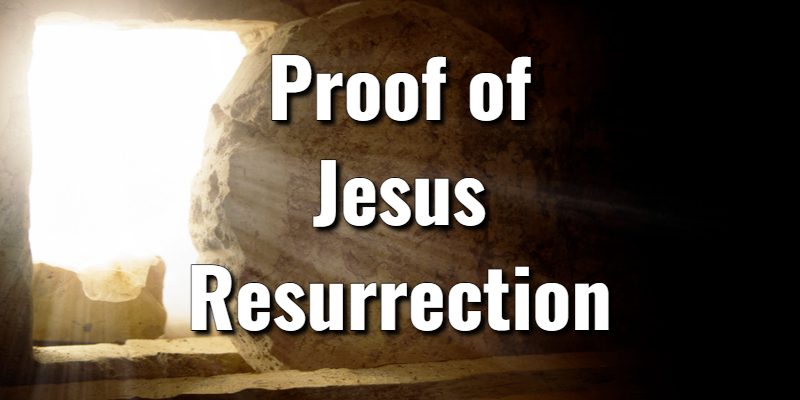Easter is the most significant Christian holiday. But the pastel-colored eggs, baskets of chocolate, and the gigantic rabbit aren’t what make it so—far from it. The central importance of Easter lies in Christ’s resurrection. Paul says as much in his first letter to the Corinthian church, some of whom questioned the reality of the resurrection in 1 Corinthians 15:12-19:
The Sadducees, a Jewish religious and political group during Jesus’s time, were among those who didn’t believe in any resurrection. That led them to deny the most important event in history: Jesus’s resurrection. Their influence and the pervasiveness of Greek platonism may have explained early Christians’ skepticism of the resurrection. Paul’s letter to the Corinthians was aimed at correcting such misconceptions.
Jesus’s resurrection from the dead is central to Christianity. Without that, as Paul notes, we have no hope and “are of all men most miserable.” See 1 Corinthians 15:19: “If in this life only we have hope in Christ, we are of all men most miserable.”
Paul realized this and reasoned with the Corinthian church. Likewise, today’s believers should know how to defend the truth of Christ’s resurrection.
Proof of Jesus Resurrection
Preparing to Argue for Christ’s Resurrection
A common first step in arguing for Christ’s resurrection is to show that the Gospels are reliable historical documents.
Lord’s Library has presented several resources to argue Biblical inerrancy. But resources about the historicity of the Gospels are especially relevant to the resurrection argument. They are the primary testimonies to the resurrection. Some solid starting points to prove the historicity of the Gospels are F.F. Bruce’s The New Testament Documents and Why Are There Differences in the Gospels? by Michael Licona and Craig Evans.
Proof of Jesus Resurrection: Resources to Learn More
Lord’s Library has identified some exceptional resources to help you defend the historical reality of Jesus’s resurrection. Many of our suggested sources below feature Gary Habermas and Michael Licona, two of the most preeminent New Testament and resurrection scholars of our day:
The Case for the Resurrection of Jesus by Gary R. Habermas and Michael Licona
This book, written by two of the foremost scholars on the resurrection, is a must-have in any Christian apologist’s arsenal. The book includes plenty of evidence and arguments for the resurrection. It ends with a chapter about how to share these arguments in evangelism.
Habermas is Dean of the Liberty Baptist Theological Seminary and Graduate School Chair in the Department of Philosophy and Theology. He specializes in New Testament scholarship and is renowned for his “minimal facts” argument for the resurrection. Licona, a former student of Habermas, is an Associate Professor of Theology at Houston Baptist University and a preeminent New Testament scholar.
A Historian Explains the Evidence for the Resurrection of Jesus (Dr. Gary Habermas) on Capturing Christianity
Cameron Bertucci’s guest list is always impressive, and this episode is no exception. This 36-minute video is an illuminating introduction to the key arguments for the resurrection. Habermas not only lays out the arguments, but he also addresses common objections, explains how Bayesian probability figures into the argument, and ends with advice for aspiring apologists.
The Risen Jesus website by Mike Licona
Mike Licona’s website, risenjesus.com, is a treasure trove of information about the resurrection. A search for “resurrection of Jesus” on his site produces abundant resources, interviews, and blog posts—all relating to the resurrection. Using just Licona’s website would be enough to make someone well-informed on this essential Christian topic.
“The Minimal Facts Approach to the Resurrection of Jesus: The Role of Methodology as a Crucial Component in Establishing Historicity” by Gary Habermas.
Several times, we’ve referenced Habermas’ “minimal facts” approach to arguing the resurrection. But what does that phrase mean in this context? Essentially, Habermas presents a handful of facts that even the majority of skeptics and atheist New Testament scholars agree on. He uses those facts as his key points in an argument for the resurrection. In this scholarly article from the Southeastern Theological Review, Habermas explains this approach.
Don’t be intimidated that this article is scholarly: Habermas’ easy tone and the lack of jargon make it accessible to even those who aren’t used to reading such resources.
William Lane Craig vs. Bart Ehrman – Is There Historical Evidence for the Resurrection of Jesus?
No apologetics list would be complete without a contribution from Dr. William Lane Craig. While Craig is most known for his rendering of the Kalam Cosmological Argument, he debates many Christian apologetics topics. This debate (transcript) is especially enlightening because of his challenger: Dr. Bart Ehrman, a New Testament scholar and professor at University of North Carolina-Chapel Hill. Ehrman is a former Christian who describes himself as an “agnostic-atheist.” He has become an influential opponent to the Gospel and to arguments about the resurrection of Jesus. Since Ehrman is such a preeminent nonbeliever who actively aims to undermine the Gospel accounts, it’s particularly important to notice how Craig rebuts Ehrman’s points.
Just before Jesus raised Lazarus from the dead, he says to Lazarus’ sister Martha in John 11:25-26: “I am the resurrection, and the life: he that believeth in me, though he were dead, yet shall he live: And whosoever liveth and believeth in me shall never die. Believest thou this?
We must answer “yes” if we are true Christians, and we should be equipped to explain why we can say that with confidence.
Lord's Library participates in affiliate programs. We may make a small commission from products purchased through this resource.
- Intelligent Design vs. Evolution: Six Web Resources to Consider - October 3, 2023
- Microevolution vs. Macroevolution: Six Web Resources to Consider - September 9, 2023
- Atheist Objection to Theism #4: Presumption of Atheism Argument - August 21, 2023















